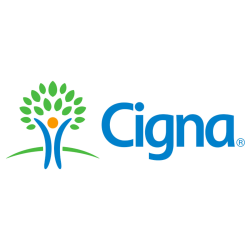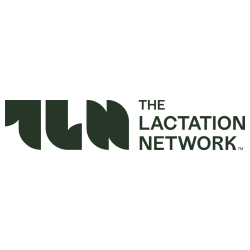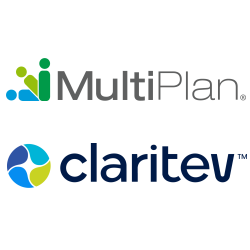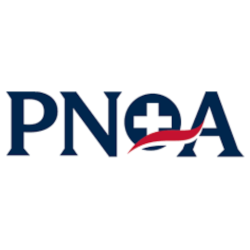The IBCLC Difference
How do International Board Certified Lactation Consultants (IBCLCs) enhance your breastfeeding experience?
An introduction to breastfeeding support roles
Finding the right support for your breastfeeding journey is invaluable. Not only will you experience smoother and more comfortable experiences, but also deep emotional fulfillment.
The bond and connection fostered through breastfeeding, supported by professional guidance, can be both empowering and deeply nurturing for both you and your baby.
Understanding the distinct breastfeeding support roles is an important step in navigating your breastfeeding journey.
IBCLCs are unique. They possess a comprehensive understanding and extensive clinical experience, enabling them to address complex lactation challenges effectively.
IBCLCs not only offer vital support for breastfeeding but also equip you with the confidence and skills you need for a rewarding breastfeeding experience.
This support is instrumental in helping you overcome hurdles you might experience to achieve your breastfeeding objectives.
Understanding the different birth workers
IBCLCs
IBCLCs are highly trained professionals in lactation, with comprehensive knowledge in health sciences and lactation. Their expertise is the result of rigorous training and substantial clinical experience, equipping them to address a wide range of breastfeeding challenges for mamas.
Key strengths and scope of work
IBCLCs provide personalized, evidence-based breastfeeding support in various settings, such as hospitals, clinics, and homes. They excel in handling both common and complex breastfeeding issues, ensuring every mama receives the most effective, tailored support. This accessibility in different environments is crucial in helping mamas establish successful breastfeeding routines and boosting their confidence.
How IBCLCs best support mamas
Committed to ongoing education, IBCLCs stay current with the latest lactation research and practices. This dedication to learning ensures mamas receive the highest standard of care, with up-to-date, evidence-based guidance for a fulfilling and successful breastfeeding experience.
Lactation consultants
General lactation consultants offer varying levels of breastfeeding support, with their training and experience differing because their qualifications are unregulated. Their education in health sciences and lactation can range from minimal to extensive, but lacks the standardized rigor of IBCLCs.
Key strengths and scope of work
These consultants typically provide basic to moderate breastfeeding support. Their strengths lie in offering general guidance and solving common breastfeeding challenges. While their scope may not cover complex lactation issues, they play an important role by offering initial support and advice. Their support can be helpful in the early stages of a mama’s breastfeeding journey.
How lactation consultants best support mamas
As the title is unregulated, their ongoing education and training can vary. However, many are dedicated to supporting mamas through essential breastfeeding education and guidance, helping to establish a foundation for successful breastfeeding.
Lactation specialists
Lactation specialists provide moderate breastfeeding support, with their training typically integrating health sciences and lactation education. Their qualifications can vary due to the different programs available, but they generally focus on basic to moderate breastfeeding issues.
Key strengths and scope of work
Lactation specialists are adept at offering general support and addressing common breastfeeding challenges. They provide valuable guidance to mamas, particularly in community and clinical settings. While they might not handle the more complex lactation problems, their role is essential in helping mamas navigate the early and more straightforward aspects of breastfeeding.
How lactation specialists best support mamas
Many lactation specialists commit themselves to enhancing their knowledge and skills, aiming to provide effective support and education for mamas. Their involvement is particularly beneficial for mamas looking for foundational support and guidance in the initial stages of their breastfeeding journey.
Lactation educators
Lactation educators focus on teaching about breastfeeding. Their training usually lasts a few months and includes basic lactation and health education. They are great for introducing new mamas to breastfeeding basics.
Key strengths and scope of work
Lactation educators are good at giving basic breastfeeding education and tips. They mostly work in community settings or groups, helping mamas learn the essentials of breastfeeding. While they don’t provide hands-on support like IBCLCs, their role is important for mamas starting their breastfeeding journey.
How lactation educators best support mamas
Lactation educators help mamas by offering initial breastfeeding guidance and raising awareness. They play a key role in helping mamas understand breastfeeding basics and set the stage for a successful breastfeeding experience. Their support is especially helpful for mamas looking for a starting point in learning about breastfeeding.
CLCs
Certified Lactation Counselors, or CLCs, have specialized training in lactation and health sciences, typically spanning 6 to 12 months. Their certification process includes a focus on providing basic lactation support, making them well-equipped to guide new mamas.
Key strengths and scope of work
CLCs offer good support for basic breastfeeding issues. They work in clinics and community settings, helping mamas with the fundamentals of breastfeeding. Their support can be quite helpful for mamas who need help with common breastfeeding challenges, especially in the early stages.
How CLCs best support mamas
CLCs support mamas by giving essential advice and guidance on breastfeeding. Their training allows them to help mamas build a strong foundation for breastfeeding. For mamas looking for reliable, basic support and information, CLCs can be a valuable resource in their breastfeeding journey.
CNMs
Certified Nurse Midwives, or CNMs, have extensive training in nursing and midwifery, often taking 3 to 4 years. This includes some breastfeeding education as part of their curriculum. They are well-versed in a broad range of maternal care aspects, including breastfeeding.
Key strengths and scope of work
CNMs provide a wide range of support, from basic to complex breastfeeding issues. They work in various settings like hospitals, clinics, and homes. Their nursing background allows them to integrate breastfeeding support with overall maternal and infant care, making them a comprehensive resource for mamas.
How CNMs best support mamas
CNMs offer mamas comprehensive care that includes breastfeeding support. Their extensive training in both nursing and midwifery means they can address a wide array of maternal and infant health concerns, including breastfeeding. For mamas looking for holistic care that encompasses breastfeeding, CNMs offer valuable expertise and support.
CMs
Certified Midwives, or CMs, undergo a rigorous 3 to 4-year training program in health sciences and midwifery, which includes some breastfeeding education. While similar to CNMs, CMs focus more on midwifery and less on general nursing, offering specialized care in maternal and infant health.
Key strengths and scope of work
CMs provide a range of support, from basic breastfeeding guidance to more involved care. They typically work in hospitals, clinics, and home settings, offering personalized care that includes breastfeeding support. Their midwifery focus helps them fill the needs of mamas and babies during the childbirth period and beyond.
How CMs best support mamas
CMs offer comprehensive maternal care that includes breastfeeding assistance. Their specialized training in midwifery equips them to address various aspects of maternal and infant health. For mamas seeking a birth worker with a strong focus on midwifery and breastfeeding support, CMs provide valuable expertise and care.
CPMs
Certified Professional Midwives, or CPMs, receive specialized training in midwifery, typically over a period of 2 to 3 years. Their education includes some integrated breastfeeding education, focusing particularly on out-of-hospital birth settings like homes and birth centers.
Key strengths and scope of work
CPMs offer support in both childbirth and basic to moderate breastfeeding issues. They primarily work in home and birth center environments. Their expertise is especially beneficial for mamas planning out-of-hospital births and those who prefer a more natural, intimate setting for childbirth and early breastfeeding.
How CPMs best support mamas
CPMs offer care that includes both childbirth and breastfeeding guidance. Their specialized training in midwifery, particularly for out-of-hospital settings, makes them a great choice for mamas looking for a natural birthing experience and initial breastfeeding support in a more personal, comfortable environment.
Lay midwives
Lay midwives offer support based on experience rather than formal certification. Their training varies widely, and they often focus on assisting with home births. Lay midwives provide supportive care, including basic breastfeeding advice, mainly in home and birth center settings.
Key strengths and scope of work
Lay midwives are known for their hands-on, experiential approach to childbirth and early breastfeeding support. They work primarily in home and birth center environments, offering guidance and comfort. While their scope for addressing complex breastfeeding issues is limited, they are valuable for mamas seeking a more traditional, personalized birth experience.
How lay midwives best support mamas
Lay midwives provide a nurturing and supportive environment during childbirth and the early stages of breastfeeding. Their experience-based approach is beneficial for mamas who prefer a less medicalized birth experience and seek initial guidance in breastfeeding within the comfort of their home or a birth center.
Perinatal support specialists
Perinatal Support Specialists undergo training in perinatal care and lactation, typically for a period of 6 to 12 months. Their education includes breastfeeding education, enabling them to offer mamas guidance during the perinatal period, which includes pregnancy, childbirth, and the postpartum phase.
Key strengths and scope of work
Perinatal support specialists provide valuable support during the perinatal period, with a focus on basic to moderate breastfeeding issues. They often work in clinics, communities, and homes, offering practical advice and support to mamas. They help mamas navigate not only the challenges of breastfeeding but also the broader aspects of the perinatal journey.
How perinatal support specialists best support mamas
Perinatal support specialists offer guidance and support that spans the entire perinatal period. Their training allows them to assist with both the physical and emotional aspects of breastfeeding. For mamas seeking support that addresses the holistic experience of childbirth and early motherhood, including breastfeeding, perinatal support specialists are a great resource.
Childbirth educators
Childbirth educators typically train for 3 to 6 months, focusing on childbirth and postpartum care, which includes some basic breastfeeding education. They specialize in preparing expectant mamas for the birthing process and early postpartum period, including initial breastfeeding guidance.
Key strengths and scope of work
Childbirth educators provide essential information and preparation for childbirth and the immediate postpartum period. They often conduct classes in community settings or healthcare facilities, where they can offer basic breastfeeding advice and help mamas understand what to expect during and after delivery. While their focus is more on childbirth education, their insights into early breastfeeding can be an important first step.
How childbirth educators best support mamas
Childbirth educators support mamas by equipping them with knowledge and skills for a positive birthing experience, which includes initial breastfeeding guidance. They help mamas feel prepared and confident as they approach childbirth and begin their breastfeeding journey.
Doulas
Doulas provide support during childbirth and postpartum, typically training for 3 to 6 months. Their education includes basic knowledge of childbirth and postpartum care, which includes some breastfeeding information. They are known for their supportive role in the birthing process.
Key strengths and scope of work
Doulas offer emotional and physical support during childbirth and the early postpartum period. They can help mamas in hospitals, homes, and birth centers. While their primary focus is not on breastfeeding, they can provide basic guidance and reassurance to mamas, especially in understanding the initial stages of breastfeeding and connecting them with further resources if needed.
How doulas best support mamas
Doulas offer mamas continuous emotional support and encouragement, helping them feel more confident and less stressed during childbirth and early motherhood. Their presence can be comforting for mamas, especially those who are new to breastfeeding, as they provide a supportive environment and can guide mamas towards more specialized breastfeeding support if necessary.
Postpartum doulas
Postpartum doulas specialize in support during the postpartum period, undergoing training that typically lasts 3 to 6 months. Their education includes aspects of postpartum care and infant care, with some basic breastfeeding information. They focus on helping mamas adjust to life with a new baby.
Key strengths and scope of work
Postpartum doulas provide support after childbirth, helping mamas in their own homes or in community settings. While they primarily focus on postpartum care and infant needs, they also offer basic breastfeeding guidance. Their presence is helpful for mamas navigating the initial challenges of motherhood and breastfeeding.
How postpartum doulas best support mamas
Postpartum doulas offer mamas practical help and emotional support in the weeks following childbirth. Their guidance in basic breastfeeding techniques and newborn care can be helpful for mamas adjusting to motherhood. For mamas looking for supportive care in the comfort of their home during the postpartum period, postpartum doulas are a great choice.
Pediatricians
Pediatricians are medical doctors specializing in child health, with extensive training that includes 7 to 10 years in medical school and residency. Their education covers a broad spectrum of pediatric care, including a minimal focus on breastfeeding as part of their overall curriculum.
Key strengths and scope of work
Pediatricians provide comprehensive pediatric care, which includes aspects of breastfeeding. They work primarily in hospitals and clinics, offering medical expertise for child health issues, including breastfeeding-related concerns. Their ability to diagnose and treat medical conditions makes them a crucial resource for mamas, especially when breastfeeding issues are part of broader health concerns.
How pediatricians best support mamas
Pediatricians assist mamas by ensuring the overall health and wellbeing of their babies, including addressing breastfeeding challenges that may have medical implications. Their extensive medical training allows them to identify and manage health issues that can affect breastfeeding, offering reassurance and professional care to mamas navigating their baby’s health needs.
Birth workers compared–breastfeeding training & support
Table column notes
- Birth Worker Role: The profession or role within the birth and lactation support field.
- Overall Education & Training Duration: Approximate duration formal education and training, encompassing both general and specialized areas.
- Breastfeeding-Specific Training: Duration of training specifically focused on breastfeeding within the overall education program.
- Certifications: Formal certifications or qualifications specific to the role.
- Breastfeeding Support & Problem-Solving Scope: The breadth of breastfeeding support provided and the range of issues the professional is equipped to address and solve.
- Clinical Experience: The required practical, hands-on experience necessary for certification or proficiency in the role.
- Continuing Education Requirements: The ongoing education requirements needed to maintain certification or licensure.
- Access to Breastfeeding Support: The typical environments or settings where the professional provides breastfeeding support (e.g., hospitals, homes, clinics).
- Hands-On Breastfeeding Support: The extent to which the professional provides direct, physical assistance in breastfeeding.
- Medical Diagnosing Capability: The professional’s capacity to legally diagnose breastfeeding-related conditions.
Scroll to see full table
| 1. Birth Worker Role | 2. Education & Training | 3. Breastfeeding-Specific Training | 4. Certifications | 5. Breastfeeding Support & Problem-Solving Scope | 6. Clinical Experience | 7. Continuing Education Requirements | 8. Access to Breastfeeding Support | 9. Hands-On Breastfeeding Support | 10. Breastfeeding Diagnosing Capability |
|---|---|---|---|---|---|---|---|---|---|
| IBCLC (Lactation Consultant) | 2-3 years (health sciences, lactation) | 12-24 months (integrated) | IBCLC certification | Comprehensive support for complex issues | 500-1000 hours | 75 credits every 5 years | Hospital, Clinic, Home, Community | Extensive | Specialized in lactation, but not licensed to diagnose medical conditions |
| Lactation Consultant (General) | 1-2 years (health sciences, lactation) | 0-12 months (varies–unregulated) | Unregulated title that does not require specific lactation training | General support, basic to moderate issues | 0 – 500 hours (varies) | Not regulated; no certification to renew | Hospital, Clinic, Community | Moderate | Focused on lactation support, without medical diagnostic authority |
| Lactation Specialist | 1-2 years (health sciences, lactation) | 6-12 months (integrated) | Varies by program | General support, basic to moderate issues | 300-800 hours (varies) | 15-40 credits every 5 years | Clinic, Community | Moderate | Provides general lactation support, not equipped for medical diagnoses |
| Lactation Educator | 3-6 months (lactation, health education) | 1-3 months (integrated) | Lactation educator certificate | Basic lactation education, guidance | Minimal (varies) | 5-15 credits every 3 years | Community, Groups | Limited | Focuses on education and awareness, no diagnostic capability |
| Certified Lactation Counselor | 6-12 months (health sciences, lactation) | 3-6 months (integrated) | CLC certification | Basic lactation support | 200-500 hours (varies) | 18-30 credits every 3 years | Clinic, Community | Moderate | Trained in lactation support, but lacks medical diagnostic licensing |
| Certified Nurse Midwife (CNM) | 3-4 years (Masters or Doctorate in nursing, midwifery) | 1-2 semesters (part of the curriculum) | Nursing and midwifery license | Comprehensive support, basic to complex issues | Extensive (varies) | Mandatory for license renewal | Hospital, Clinic, Home | High | Registered nurses with additional midwifery training; licensed for comprehensive maternal care, including diagnosis |
| Certified Midwife (CM) | 3-4 years (health sciences, midwifery) | 1-2 semesters (part of the curriculum) | Midwifery certification | Comprehensive support, basic to complex issues | Extensive (varies) | Mandatory for license renewal | Hospital, Clinic, Home | Moderate to High | Similar to CNMs in scope, but without a nursing background; licensed in some states |
| Certified Professional Midwife (CPM) | 2-3 years (midwifery) | 1-2 semesters (integrated) | Midwifery certification | Comprehensive support, basic to moderate issues | Extensive (varies) | Mandatory for certification renewal | Home, Birth Centers | Moderate | Specialized in out-of-hospital births with focus on maternal care; varying scope of practice depending on state regulations |
| Lay Midwife | Varies | Varies | None | Supportive role, referral for complex issues | Varies | None | Home, Birth Centers | Limited | Not formally certified; experience-based practice with no legal authority for medical diagnosis |
| Perinatal Support Specialist | 6-12 months (perinatal care, lactation) | 3-6 months (integrated) | Perinatal support certification | General support, basic to moderate issues | 200-500 hours (varies) | 18-30 credits every 3 years | Clinic, Community, Home | Moderate | Supports perinatal care, but not authorized for medical diagnoses |
| Childbirth Educator | 3-6 months (childbirth, postpartum care) | Included, but minimal | Childbirth educator certification | Basic lactation education, guidance | Minimal (varies) | 5-15 credits every 3 years | Classroom, Community | Limited | Specializes in childbirth education, not diagnosis |
| Doula | 3-6 months (childbirth, postpartum care) | Included, but minimal | Doula certification | Supportive role, referral for complex issues | Minimal (varies) | 5-15 credits every 3 years | Hospital, Home, Birth Centers | Limited | Provides emotional and physical support, not involved in medical diagnoses |
| Postpartum Doula | 3-6 months (postpartum care, infant care) | Included, but minimal | Postpartum doula certification | Supportive role, referral for complex issues | Minimal (varies) | 5-15 credits every 3 years | Home, Community | Limited | Offers postpartum support, but not qualified for medical diagnoses |
| Pediatrician | 7-10 years (medical school, residency) | 1 semester (minimal lectures as part of the curriculum) | Medical license | Comprehensive pediatric care, including breastfeeding | Extensive (not lactation specific) | Mandatory for license renewal | Hospital, Clinic | Limited to moderate | Medical doctors with the authority to diagnose and treat medical conditions, including breastfeeding-related issues |
The importance of early breastfeeding support
The early stages of motherhood are a critical time for establishing breastfeeding. Early and effective breastfeeding support, especially from skilled professionals like IBCLCs, can significantly impact your breastfeeding success and duration.
This support is crucial not only for the health and well-being of your baby but also for your own physical and emotional recovery.
Whether addressing challenges, offering reassurance, or helping to build a strong breastfeeding foundation, the right support can set the stage for a rewarding breastfeeding journey.
Check your insurance for coverage
Check the back of your insurance card for one of these logos. We work with The Lactation Network (TLN) and Wildflower for insurance coverage through the many insurance providers.




















